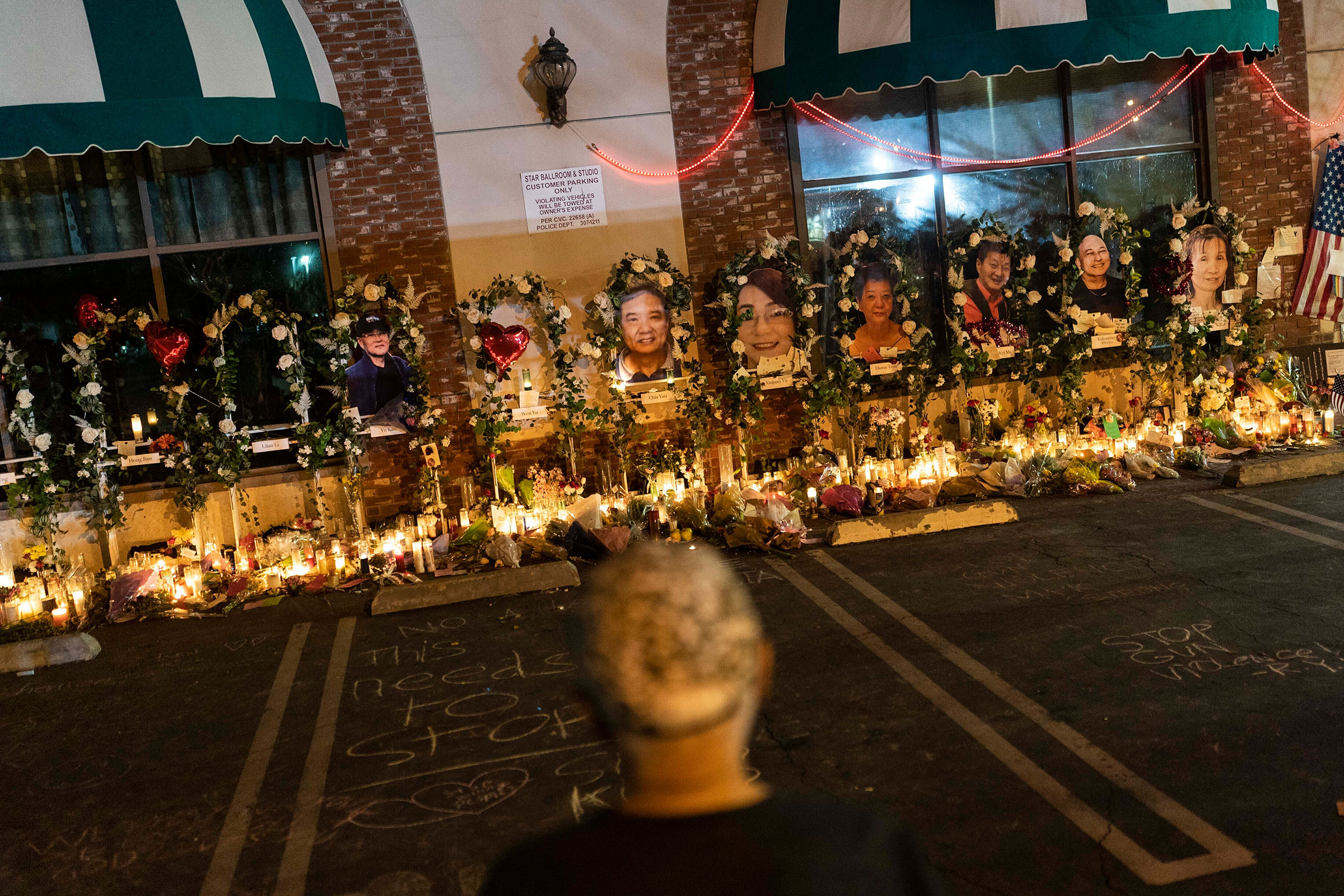One year after a mass shooting left 11 dead and nine injured at Star Ballroom Dance Studio during a Lunar New Year dance party, Monterey Park, Calif. is preparing for its annual festival. But the festivities will carry a different weight this year.
[time-brightcove not-tgx=”true”]
The city—typically the first in the region to kick off Lunar New Year celebrations— has pushed back its annual festival by a week, and plans to hold a vigil to honor the victims lost on Jan. 21, 2023.
“We’re trying to be very mindful of the fact that there are going to be residents in this community, who were impacted by the shooting last year, who might not have a friend or family member to celebrate with them, and that it also might bring back thoughts of grief,” says Jose Sanchez, mayor of Monterey Park. “That’s okay, that’s part of the healing process.”
The city plans to bring back its typical two-day Lunar New Year festival—shutting down a busy street for entertainment and activities that draw thousands of visitors— while also holding additional events, including a training on ‘red flag’ laws and a city-wide vigil on the shooting’s anniversary to honor the victims and create space for those that are still healing.
Other cities are looking to Monterey Park to show what it means to move forward from a tragedy without forgetting. Monterey Park is known as a suburban Chinatown, and it has become a destination for many Asian Americans in the Los Angeles region looking for Chinese food, groceries, and a sense of community. “[Monterey Park] has a very central role in the Asian American community, which is why the January 21st shooting impacted so many people,” says Henry Lo, a council member and former mayor of Monterey Park. “A lot of communities look to us as a leader, and I think it’s important to show that we will not forget the victims, but also acknowledge important events in the community.”
While the anniversary throws a spotlight on Monterey Park, healing has been an ongoing effort for residents over the past year. In the months following the shooting, cultural events have served as a way to bring the community together— Lo and Sanchez both said that the city has seen higher turnouts for city-organized events.
One of the challenges the city faced was figuring out how to provide services for survivors that might not seek them out on their own, especially considering that discussions of mental health are often taboo among Asian Americans— a population 50% less likely than other racial groups to seek mental health services, according to UCLA Health.
A resiliency center was established by the Chinatown Service Center (CSC), an LA-based non-profit working to address the needs of Chinese immigrants in the region. The Resiliency Center has offered workshops tailored to the mostly elderly participants, such as mindfulness activities and chair yoga. And, in November, they began organizing ballroom dance workshops for the survivors. “It’s a healing experience, because they’re recreating a narrative and moving forward,” says Nina Yuen Loc, Director of Behavioral Health at CSC.
Attendance jumped from 80 participants at the first Resiliency Center dance workshop to over 240 at the most recent, according to Loc. She says members of the community might be surprised by the impact the anniversary has on them. “One year is a trauma cue,” she says. “Everyone reacts to the incident very differently.”
For Kevin Leung, a Monterey Park resident who ran his martial arts school out of Star Ballroom before the shooting and knew two of the victims, last year’s events are hanging over Lunar New Year, even as he plans to attend the festival with his kids. “Every day when I’m driving to work, I pass the building and I’m reminded that there’s still nothing there. The sign has been torn down, but the building still stands,” he says. “I think that I’ll still always have it in the back of my mind.”

